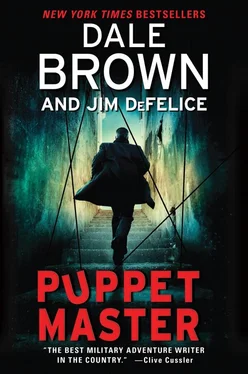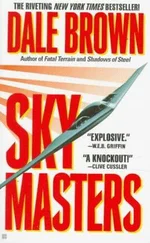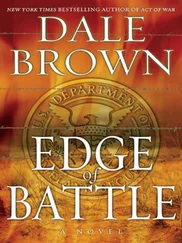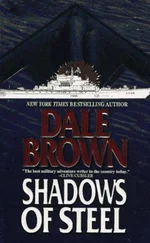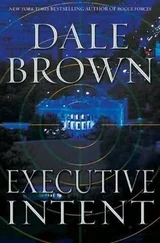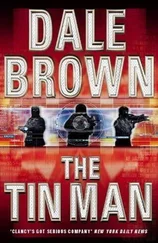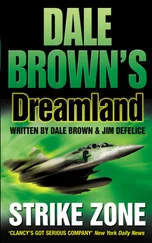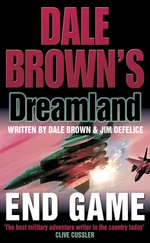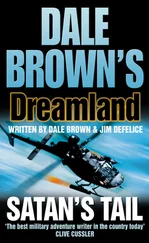“It’s kind of creepy,” said Martyak.
“I think it’s cool,” insisted Borya.
Chelsea let the robot run through its paces for a while longer, then suggested they go upstairs to her lab to look at some of the coding. When they got there, she asked if either of them wanted something to drink.
“I’ll take a root beer,” said Borya.
“Me, too,” said Martyak. “But uh, first — can I use the restroom?”
“It’s right down the hall on the left,” said Chelsea. She waited until Martyak was out of the room, then tapped her computer screen. “Take a look at this, Borya,” she said as a page of coding filled the screen.
The girl leaned in and began examining the program. She squinted, then began to pale.
“I know what you did,” said Chelsea. “With the ATM machines? I got the coding off the dark net myself, just as you did.”
“I…”
“You’re going to get in a lot of trouble. But I have a way out for you. We need to talk to your dad.”
“You’re going to tell him?”
“You should tell him. Can you give the money back?”
Borya didn’t say anything.
“You’ve stolen quite a lot,” said Chelsea. “This is very serious. The FBI—”
“I can give it back,” blurted Borya. “But my dad — he’s missing! He was supposed to call me and he hasn’t. And he hasn’t answered our code. He must be in big trouble.”
She started to cry.
Donetsk, that day
The day did not go well.
Clearly no longer trusting him, Dan didn’t want to let Tolevi out of his sight. Tolevi accordingly changed plans, deciding that he would take up Dan’s offer to drive him to Crimea; he could fly from there or, if things seemed to be going south, call on contacts for help. It was a better option than inadvertently leading Dan to Denyx Fodor.
He put off telling Dan, deciding to get a better idea of what was going on in the city, since they wouldn’t leave until night in any event. They visited several cafés and coffee shops that morning; Tolevi began asking about coffee, warming to the idea of importing the commodity. In the afternoon, he went into a few pharmacies, checking their stocks. Coffee and aspirin would be big moneymakers here, he decided; too bad the bearded colonel had declared him persona non gratis.
Maybe that could be reversed.
Tolevi watched Dan’s reactions as he chatted up the shopkeepers. He was curious, a hustler himself no doubt, smart enough to be quiet.
Maybe it would make sense to partner up. If Dan got him to Crimea: That would be the first test.
By mid-afternoon, Tolevi wanted — needed — a nap. Dan insisted on staying in the room as he slept. That was more than a little awkward, but Dan couldn’t be talked out of it, so Tolevi caught a fitful hour and a half of sleep, ending up feeling more tired than when he lay down.
They had dinner at the hotel. Tolevi felt Dan’s eyes on him as if they were a physical thing, rubbing against his temples, scratching at his throat.
“Let’s go for a walk,” he suggested when they were done.
Two blocks later, he asked Dan what it would cost to get him to Crimea.
“Round trip, two thousand euros.”
“I can get you five hundred, for one way,” said Tolevi. “When we get there.”
“One thousand five hundred, all in advance.”
Tolevi laughed. “I’m not so stupid that I would pay anyone for that trip in advance, not even my own brother. And I don’t have the money, besides.”
“Then pay me now for the trip here, and we’re done.”
“We can do that,” said Tolevi.
They continued walking, still heading away from the hotel. After a block, Dan stopped him.
“I would consider taking the money when we got to Crimea,” he said, “if you pay me the money you already owe me now.”
“You have papers if we’re stopped at the border?” Tolevi asked.
“We won’t be stopped. I know several ways.”
“I’ll tell you what. I’ll give five hundred euros before we leave, and two thousand in Crimea when I arrive. But first we have to do one thing.”
“Name it.”
“I need to get a gun. I’m not going near the border with no defense.”
* * *
Buying a gun in Donetsk was harder than Tolevi would have guessed. There were several gun stores in the city, including one not far from the hotel, but all had been closed since the beginning of the war. Dan claimed not to know of anyone who would sell one, and Tolevi finally decided he would have to use one of his business contacts to get the weapon. Using Dan’s phone, he called him, and after buttering him up with talk about importing medicine and coffee, he found him willing to help. In fact, the man was so cheerful about it, telling him not only where to go but also saying he could use his name, that Tolevi felt a little guilty. If the Russians were listening in, they would roll the shopkeeper up by the end of the week.
The gun dealer worked out of a club on the eastern side of the city. The area had become something of an unlikely hot spot in the past few months, with young Donetskers flocking there after hours to hear dance music and lose themselves in alcohol and whatever drugs they could find. Even at this early hour, the district streets were full, which seemed to throw Dan as he hunted for a place to park.
“Just drop me and wait,” Tolevi told him as he went around the block.
“I’m coming in.”
“These things are better done alone.”
“I’m coming in.”
“You’ve been in this place before?”
“Never.”
“Try the next block. Let’s not get too close.”
Even three blocks away, it was hard to find a spot. Dan locked the car, checked the door twice to make sure, then ran to catch up to Tolevi, who had assumed his jaunty, no-one-better-screw-with-me step. Tolevi glanced at Dan’s face as he caught up; he had the look of a worried younger brother.
Under other circumstances, Tolevi might have been amused, but at the moment any sign of vulnerability was potentially a fatal liability. He whirled on Dan. “Hike up your game.”
“What?” stuttered Dan.
“You walk like a scared rabbit. Go in confident, or stay here.”
“I don’t know what you’re talking about.”
“Pretend you’re a gangster,” Tolevi told him. “And walk like it. Or we’re dead meat.”
The quizzical look on Dan’s face made it clear he still didn’t understand. Tolevi gave up, charging toward the club.
It was barely midafternoon, way early for a place like this, but two bouncers looked over anyone who wanted to enter.
“I have business with Mr. Ivan,” Tolevi told the one with the more intelligent face.
The bouncer looked at Dan.
“He’s with me.” Tolevi brushed past, walking with the swift determination of a veteran party crasher. The door led to a wide ramp that made an L turn after twenty feet; there was another bouncer stationed there, though all he did was glare as Tolevi passed. A set of double doors separated the hallway from a large dance area that vibrated with Euro electric pop. It was Western music circa 1995, an odd choice for Donetsk, but then there was no telling what sort of psychological undercurrents ran through the population, especially the younger crowd that frequented the place.
The dance floor was surprisingly crowded. Women in skirts that barely covered their butt cracks gyrated around and between men wearing jeans so tight they could only be eunuchs. Colored lights throbbed from above in no discernible pattern; a five-year-old playing with a light switch would have produced roughly the same effect.
Tolevi angled through the dancers to the bar area on the right. It was an odd contraption. A third of it was wrapped in black leather with Christmas lights stapled into the fabric; another third was a pressboard frame, unfinished except for the cherry bar top. The final third extended the same bar top on sawhorses. The bar was standing room only, and not much of that. Tolevi squeezed in, ordered himself a vodka, and asked the bartender where Mr. Ivan might be.
Читать дальше
